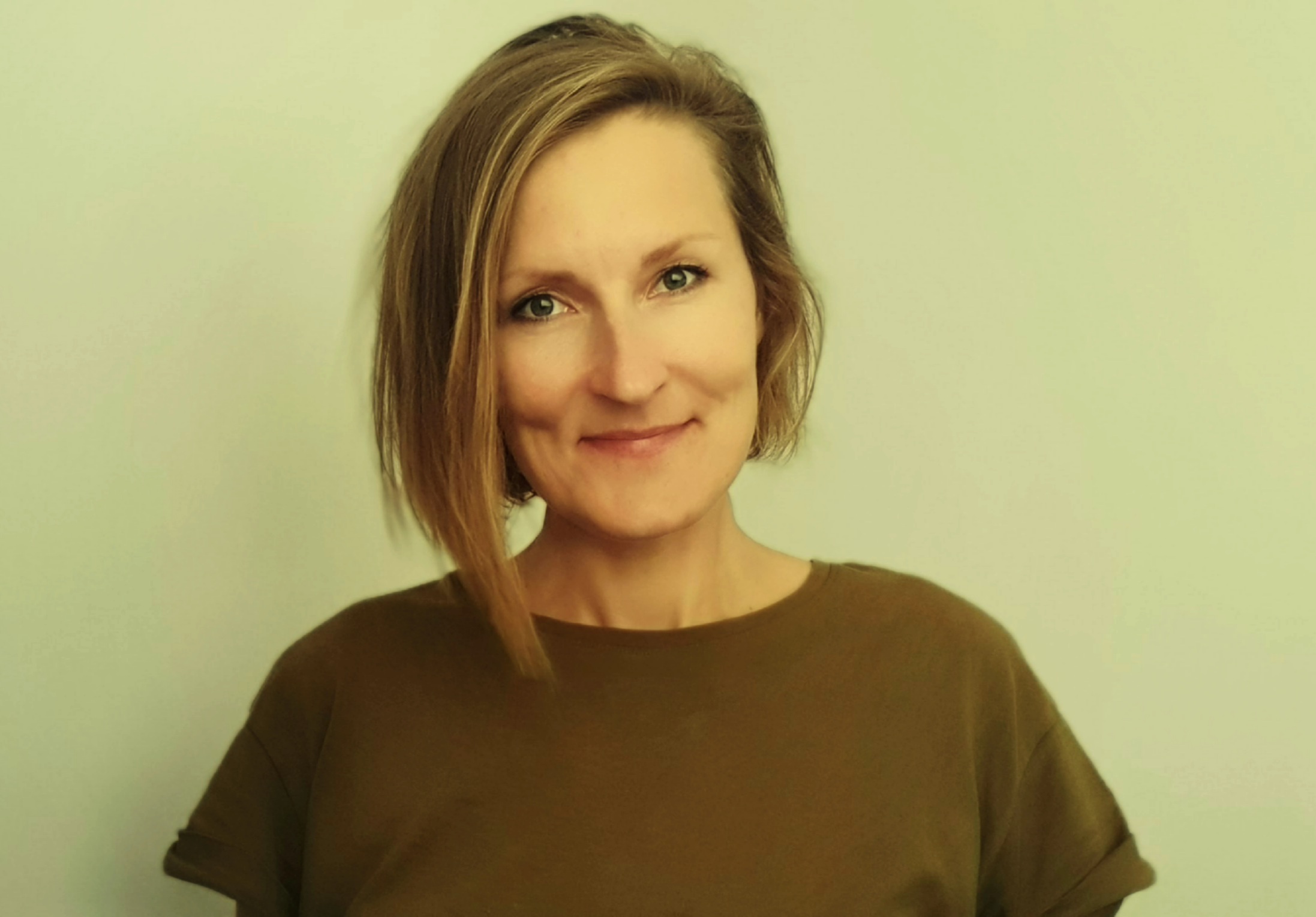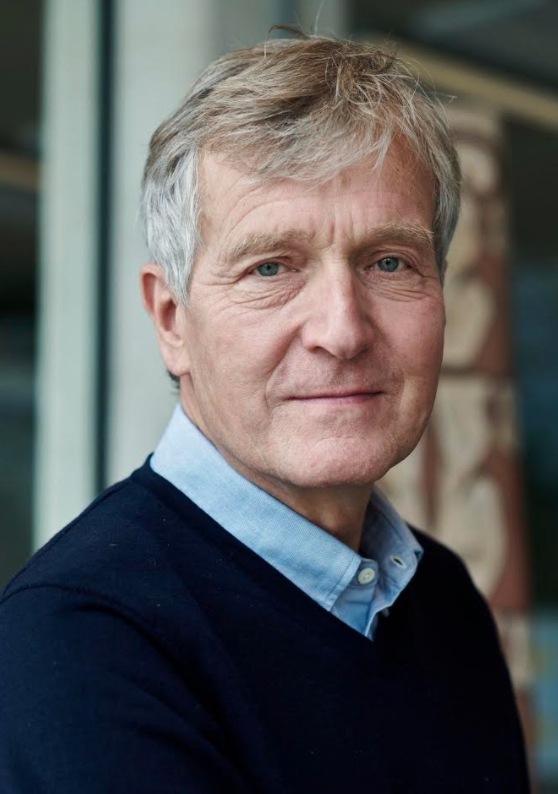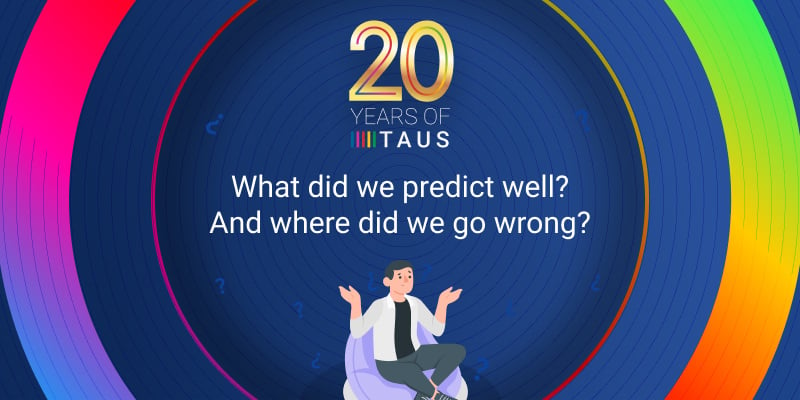The Great Debate 2: MT simply can't win this race.

Lane Greene is firm that MT cannot win against English as the lingua franca. Greene explains why he thinks that English is the language of the future. If any character on earth epitomizes unwillingness to learn English, it is the Parisian waiter. This figure will not only refuse to speak English. He will correct your French if you speak less than perfectly. Now, this is mostly a myth.
In 2014, I took part in a lively and enjoyable debate with an intellectual hero, Nick Ostler. Our topic was whether English or MT was the “language” of the future. As we were in Dublin, Nick (wouldn’t he just?) began his remarks in Irish. He went on to argue (in English, thank goodness) that English is not gaining any significant ground as a mother tongue. He concluded advances in MT would render unnecessary the large-scale learning of English in future decades. His book, The Last Lingua Franca, which I reviewed positively in The Economist, makes the same case.
Nick won the vote. I could complain that I was facing an audience of MT professionals—it was never going to be easy going for me. I could slyly point that even if Nick could have continued his debating in Irish, probably not a soul in the room—in Dublin!—would have understood him. He had to argue against English in English. But he had a good case.
Since that debate, I have a lot more respect for MT than I did then. I wrote a special report on language technologies for The Economist in late 2016, right as deep neural networks were dramatically improving a host of language technologies—not just MT but also speech recognition, notably. Google’s new neural version of Translate improved on an already good result for easy European language pairs, and gave strikingly good results for Arabic and Hebrew, I found. Chinese went from near-useless to useful, even though the output was clearly rocky.
 So why do I still think English is the language of the future? The plural of anecdote is not data, but as a journalist, let me start with anecdote first. If any character on earth epitomises unwillingness to learn English, it is the Parisian waiter. This figure, it has long been said in America and Britain, will not only refuse to speak English. He will correct your French if you speak less than perfectly. Now, this is mostly myth: in my 25 years of visiting France my middling French has never been corrected by a waiter. Now, though, something is new: the young waiters in Paris do really seize on the small disfluencies in your French—and when they do, they switch immediately to excellent English.
So why do I still think English is the language of the future? The plural of anecdote is not data, but as a journalist, let me start with anecdote first. If any character on earth epitomises unwillingness to learn English, it is the Parisian waiter. This figure, it has long been said in America and Britain, will not only refuse to speak English. He will correct your French if you speak less than perfectly. Now, this is mostly myth: in my 25 years of visiting France my middling French has never been corrected by a waiter. Now, though, something is new: the young waiters in Paris do really seize on the small disfluencies in your French—and when they do, they switch immediately to excellent English.
The French are not alone. Young people across Europe are startlingly good English-speakers. EU figures back up what I have seen not only in France, but in Spain and Italy, Denmark and Sweden, Germany and Switzerland, and even Poland, Croatia and Slovenia in recent travels. In 2015, 96% of EU students were learning English in upper secondary school. In many countries, close to 100% are learning it in primary school, and many school systems have begun English as early as the first year. Overall, well over 80% of continental Europeans are getting English in primary school now. (Many of those who aren’t live in places like Belgium and Luxembourg, where they are first expected to be multilingual in their national languages. Needless to say, they will also learn English—and to a high level at that.)
This fact about primary school is important. Denmark is one of those countries that starts it in the first year now. In that country, older generations nearly all speak English—but with a heavy accent, modest grammar mistakes, and sometimes a level of obvious effort. People my age roughly (43), by contrast, speak English strikingly well. Their fluency is far greater, and their few errors rarely contribute to a lack of understanding. They read every day in English, and would never dream of watching an American movie or a British show dubbed.
But the kids! These put my generation to shame. Not only do they speak English comfortably; they speak it like natives. The have little or no accent. I am now losing track of the times I have asked a young person where they are from, expecting that they are one of my fellow Americans: “I’m from here,” in Reykjavik, stunning me: how could this young woman sound like she was from Kansas? “From Stockholm,” from a new colleague. “But haven’t you lived in the states?” “No.”
For these young people, English is not just some utility, a skill they partly master in order to get themselves a better job. It is one of their own languages. They live in it. They hardly need to summon mental energy to speak it. And they are not some tiny elite, like Francophone Russians under the tsars. They are ordinary kids, Facebooking or Snapchatting the friends they met on an Erasmus stay in perfect English, or playing online videogames, sharpening the cut and thrust of their English in the course of some wildly stimulating multiplayer game at an early age. Netflix and Hulu and Amazon prime beam American and British television (from the sublime to the admittedly inane) into every home.
Before our eyes, the world’s third English-speaking continent is being born: Europe, the first one where English is a small minority as a native language but an absolutely dominant lingua franca. What does that mean for the rest of the world? It hardly follows inevitably that Asia, Latin America and Africa will travel the same path. But there’s a good reason that they might: the EU is the largest economy in the world, and the US, the second-largest. They are the two richest regions as well. This makes English—the key to working or trading there—enormously valuable. And that value is growing with every passing day, as people die who have never learned English, and as young people enter the job market who can’t remember life without it.
.png) Needless to say, the trend feeds itself. Not only does the economic return on English grow daily. The barriers to learning it falls: with more and more fluent English speakers in the world, the number of teachers, the quality of teachers, and the opportunities for practice with fluent speakers are all increasing too. In the old days, bad teaching meant that many people’s “skill” in English existed in name only. But tomorrow’s students will be taught better. They will also hear more English in the media, and they will have vastly more practice speaking with other fluent speakers as children. As a result, their foundation will be far stronger when they tune it as adults. And the technology that is feeding MT is also feeding cleverer and cleverer language-learning tools: adaptive ones that focus on and adapt to a learner’s weak spots are already on the market. These tools will approach perfection a lot faster than MT will.
Needless to say, the trend feeds itself. Not only does the economic return on English grow daily. The barriers to learning it falls: with more and more fluent English speakers in the world, the number of teachers, the quality of teachers, and the opportunities for practice with fluent speakers are all increasing too. In the old days, bad teaching meant that many people’s “skill” in English existed in name only. But tomorrow’s students will be taught better. They will also hear more English in the media, and they will have vastly more practice speaking with other fluent speakers as children. As a result, their foundation will be far stronger when they tune it as adults. And the technology that is feeding MT is also feeding cleverer and cleverer language-learning tools: adaptive ones that focus on and adapt to a learner’s weak spots are already on the market. These tools will approach perfection a lot faster than MT will.
The proportion of the world speaking English is not growing constantly—a line pointing upwards, to a distant 100% one day. It is accelerating, a line curving upwards. 100% is getting closer faster with every day. That line will flatten at some point too: the world’s poorest will be hard to reach. But the world’s rapidly growing middle class will soon see English alongside math: indispensable in every education. We have never seen anything like the dominance of English today. But 25 years from today it will be far more dominant still.
MT, with the gains it makes bit by painstaking bit, simply can’t win this race.
Related links:

Lane Greene is the language columnist and an editor at The Economist, based in London. Previous assignments have included culture, European business, law, energy, the environment, and American politics. He is based in London, after living in Berlin and New York. Greene is the author of two books, Talk on the Wild Side (2018) and You Are What you Speak (2011), and won the journalism award from the Linguistic Society of America in 2017. He is a former adjunct assistant professor in Global Affairs at New York University, and is a consultant to Freedom House, a non-governmental organization. He received an M.Phil. from Oxford in European politics, and a B.A. with honors from Tulane in international relations and history, and speaks nine languages. Greene was born in Johnson City, Tennessee and grew up in Marietta, Georgia. He lives in London with his wife and sons.
 by Dace Dzeguze
by Dace Dzeguze


